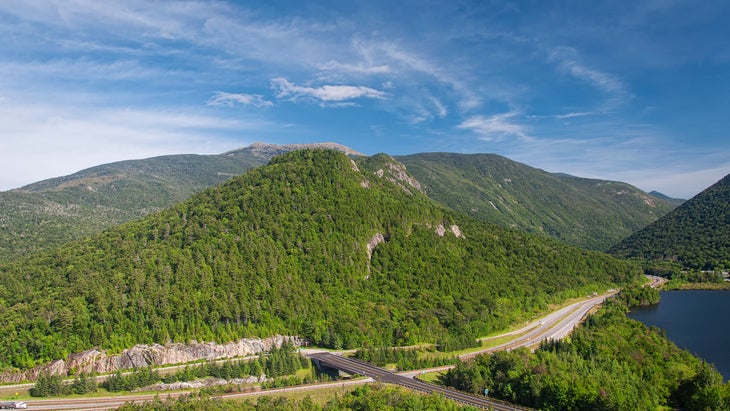On November 20, 2022, 19-year-old Emily Sotelo set out on a solo hike on New Hampshire’s Franconia Ridge. Her mom watched her disappear up the trail, expecting to meet up with Emily later that day at a prearranged spot.
Emily never showed up, and three days later, searchers on the northwest side of 5,249-foot Mt. Lafayette. From news reports, it seemed she had gotten confused on a section of the Lafayette descent, lost her way, and succumbed to exposure as the temperatures dropped and winter weather blew in.
At first, I skimmed the news. I’d heard a hiker was missing in the , and I’d been following the story. When her body was found, I felt a stab of sadness and regret that it had ended this way. Then, I pushed it out of my mind, I didn’t want to think about it. I didn’t want to entertain the similarities between this 19-year-old hiker and the 19-year-old hiker I used to be, venturing solo on the same trails in pursuit of my own 4,000-footer list.
It wasn’t until I sent the article to my father in New Hampshire that I actually had to think about the tragedy with something other than surface-level consideration. My dad, big-hearted and unabashed with his feelings, responded “That poor girl. She must have been so scared.”
His simple, sincere message felt like a gut punch. I’d felt sadness for her and her family, but I hadn’t let myself get deep enough to really put myself in her place. I had gotten into the same situation as her before—lost and in the middle of worsening weather. But I had always returned with nothing more than a tale of stumbling around in the woods for longer than I would have liked.
My dad’s message forced me to consider what it might have been like if I had been just a little less lucky. is a prolonged process. I imagined a solidifying understanding of her situation. Perhaps it took a few minutes to notice she’d lost the trail. Initial calmness might have given way to mounting panic as she scanned trees, rocks, and patches of snow for anything familiar. The more she walked around, the harder her footprints would have been to retrace. Slowly, it would have gotten darker until she was on the side of a mountain at night with exposure beginning to set in. Maybe I’m letting my imagination get the best of me. Once you slip below the surface of a tragedy that could have happened to you, it’s hard not to.
When I went online and poked around some of the New England hiking groups on Facebook, I was relieved to see most of the comments about Emily’s death—and there were hundreds—were compassionate. People talked about how shocked they were, and sent the kind of thoughts and prayers that make up every online reaction to a tragedy. There were service-oriented responses— and links to good GPS devices—as well as genuine questions from readers trying to understand how the hike went so wrong.

And then, like I’d anticipated, there were the self-aggrandizing commenters who announced everything Emily had done wrong, and that they would never make those same mistakes:
“How about her core! Did she have a big puffy down jacket to put on when she was caught [in] dreadful conditions?….A good wool hat. Energy bars. Big puffy overmitts and hand warmers. This is certainly a recurrent problem up there.”
“Trail runners are equally useless in these conditions.”
“Some are really stubborn and don’t want to hear it…regardless of how one attempts to share in a non-threatening way, non-critical way [their] minds are set and there is no changing them.”
People can be unrelentingly judgemental when someone dies in an accident or from the elements, but maybe other reactions are just too painful. What’s the alternative? Putting yourself in her shoes? Pausing to think about the terror that must have encompassed her final hours? Maybe people who criticize a deceased hiker’s decisions are afraid that if they acknowledge it could have been them, they’ll crack the door for self-doubt to creep in. If they accepted that only a few mistakes and some bad luck separated them from an accident victim, could they still summon up the courage to chase winter summits, backpack solo, or travel through bear country?
How much easier it is to judge the deceased.
When other hikers tear apart an accident victim’s decisions, gear, and experience, they’re telling themselves: This is sad and scary, but it won’t happen to me. I’m better than that. It alleviates fear by reducing a human being to the choices that led them to their final moments.
When someone dies in the backcountry, there will always be speculation about what they could have done differently. Maybe Emily wasn’t prepared for bad weather or losing the trail—according to reports, she was missing some standard winter hiking gear. But does everyone leave for a day hike with a GPS unit, headlamp, and supplies for spending the night outside? According to the best advice, we should, but I doubt most people in the comments follow those directives perfectly every time, and most of them get away with it; Emily didn’t. There’s a way to discuss those mistakes without abandoning compassion.
There is a certain amount of powerlessness we accept every time we go outside, and it can be easier than any of us think to Regardless of precautions and space blankets and GPS devices, there are elements that are out of our control. A , a loose rock, or a missed turn can get the best of the most prepared hiker.
No matter how many times we make it home, misfortune can befall any one of us. We owe it to each other and our community to withhold judgment in the face of these tragedies and practice a little empathy instead. We can and should make sure we’re prepared to experience the outdoors as safely as possible. But in the end, none of us are ever fully in control.


